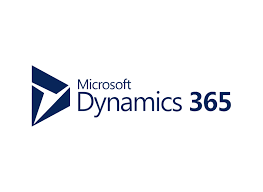Microsoft Cloud
Experience the innovation and flexibility with Microsoft Cloud - the ultimate portal to limitless possibilities!
Microsoft Azure
Microsoft Azure is a comprehensive cloud computing platform offered by Microsoft. It provides a wide range of services and tools that enable developers to build, deploy, and manage web applications effectively.
One of the key services offered by Microsoft Azure for web development is Azure App Service. Azure App Service enables developers to build and host web applications and APIs using various programming languages such as .NET, Java, Node.js, Python, and Ruby. It supports seamless integration with other Azure services and provides scalability, high availability, and automatic patching.
Azure Functions is another service provided by Azure that allows developers to create small, event-driven, serverless functions. These functions can be written in multiple programming languages and trigger based on different events, such as HTTP requests, database changes, or messaging queues. Azure Functions enable developers to build microservices or perform specific tasks without managing the underlying infrastructure.
Azure Web Apps is a service that provides a fully managed platform for hosting web applications. It supports popular frameworks such as ASP.NET, Java, PHP, and Node.js. Azure Web Apps offer automatic scaling, continuous deployment, and integration with Azure DevOps for streamlined application development and deployment process.
Azure Static Web Apps is a recently introduced service that simplifies the deployment of static web content, such as HTML, JavaScript, and CSS. It enables developers to easily deploy static websites and supports hosting from various sources, including GitHub repositories. Azure Static Web Apps also provides built-in authentication and authorization integration for secure access to static web applications.
These services offered by Microsoft Azure are just a few examples of the extensive range of tools and services available for web development. Depending on specific requirements, developers can benefit from Azure’s offerings to host websites, develop serverless applications, build and deploy APIs, integrate with various systems and services, and more.

Microsoft 365
Microsoft 365, formerly known as Office 365, is comprehensive suite of productivity and collaboration tools offered by Microsoft. It is designed for businesses and individuals to streamline work processes, enhance communication, and increase overall productivity.
Microsoft 365 includes a range of applications such as Word, Excel, PowerPoint, Outlook, OneNote, and Access, which are industry-standard tools for word processing, spreadsheet management, presentations, email and calendar management, note-taking, and database creation respectively. These applications are available in both online and desktop versions, allowing users to work seamlessly across multiple devices and platforms.
In addition to the traditional Office applications, Microsoft 365 also offers various cloud-based services like SharePoint, Teams, OneDrive, and Exchange Online. These services enable users to collaborate and share documents in real-time, store files securely in the cloud, communicate with colleagues through chat, audio, and video conferencing, and manage emails and contacts more efficiently.
Furthermore, Microsoft 365 provides advanced security features to protect sensitive data, integrated task management tools to track and prioritize work, and artificial intelligence capabilities to automate repetitive tasks and provide valuable insights. It also offers mobile apps for iOS and Android devices, allowing users to access and edit files on the go.
Overall, Microsoft 365 offers a comprehensive suite of productivity tools and services that cater to the needs of businesses and individuals, enabling them to work more efficiently, collaborate effectively, and stay organized in the digital age.

Dynamics 365
Dynamics 365 is a of cloud-based business applications by Microsoft. It integrates various modules and functionalities to a comprehensive solution for customer management (CRM) and enterprise resource planning (ERP).
Dynamics 365 offers a range of applications tailored to specific business needs, such as Sales, Marketing, Customer Service, Field Service, Project Service Automation, Finance and Operations, and Supply Chain Management. These applications can be used individually or together to create a customized solution for an organization.
One key feature of Dynamics 365 is its seamless integration with other Microsoft products and services, including Office 365, Power BI, Power Apps, and Azure. This integration allows for easy data sharing and collaboration across different platforms and applications, enhancing productivity and efficiency.
Another notable aspect of Dynamics 365 is its cloud-based nature, which means that the software is hosted on Microsoft’s cloud infrastructure. This eliminates the need for on-premises servers and IT maintenance, reduces costs, and provides scalability and flexibility for businesses of all sizes.
Moreover, Dynamics 365 utilizes advanced analytics and artificial intelligence capabilities to provide insights and predictive suggestions to users. It enables organizations to leverage data-driven decision-making, automate repetitive tasks, and improve customer engagement and satisfaction.
In addition, Dynamics 365 offers a unified user interface and a consistent user experience across different applications. This simplifies navigation and enhances user adoption and productivity.
Overall, Dynamics 365 is a comprehensive business application suite that combines CRM and ERP functionalities with cloud computing, integration with Microsoft services, advanced analytics, and AI capabilities. It provides businesses with a flexible and scalable solution to manage various aspects of their operations and drive growth and customer satisfaction

